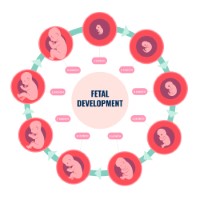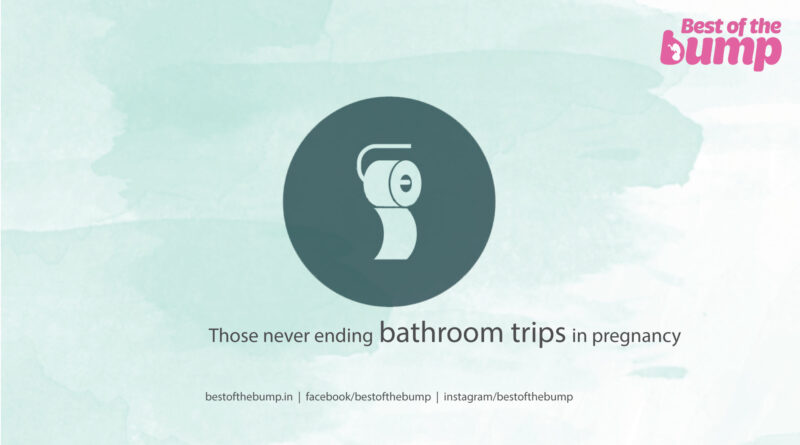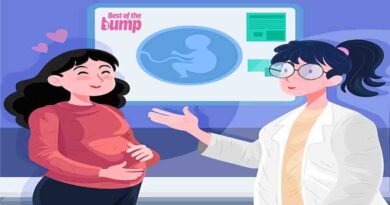Those never ending bathroom trips in pregnancy
Never ending bathroom trips in pregnancy, pregnancy is a miraculous journey, but it comes with its fair share of discomforts, and one of the most common and bothersome symptoms is the never-ending bathroom trips. The constant urge to pee can be both frustrating and inconvenient for expectant mothers. In this comprehensive guide, we will delve into the reasons behind this urinary urgency during pregnancy, explore its impact on pregnant individuals, and provide effective strategies for managing and coping with this challenge.
The Hormonal Roller Coaster Never ending bathroom trips in pregnancy
Never ending bathroom trips in pregnancy, pregnancy is a beautiful and transformative experience, but it also comes with a host of physical changes, including the never-ending bathroom trips that can be quite challenging for expectant mothers. One of the primary factors contributing to this urinary urgency is the hormonal roller coaster that occurs during pregnancy.
The Role of Hormones
Never ending bathroom trips in pregnancy, hormones play a crucial role in orchestrating the various changes that occur in the body during pregnancy. The hormone human chorionic gonadotropin (HCG) is particularly responsible for directing more blood flow to the pelvic area, which is beneficial for the baby’s fluid intake and overall development.
Increased Blood Flow and Urination

Never ending bathroom trips in pregnancy, as the blood flow to the kidneys increases, they filter more urine than usual, leading to a higher frequency of urination. This increased urinary output is the body’s way of eliminating waste products and excess fluids to support the growing baby.
Uterine Expansion and Bladder Pressure
The growing uterus puts pressure on the bladder as it expands to accommodate the developing fetus. This pressure reduces the bladder’s capacity to hold urine, making pregnant individuals feel the constant need to pee.
Impact on First Trimester
Never ending bathroom trips in pregnancy, the hormonal changes are most prominent during the first trimester, which can be particularly challenging for expectant mothers. The combination of hormonal influence and uterine pressure creates an incessant urge to visit the bathroom frequently, adding to the other discomforts experienced during early pregnancy.
Coping with the Hormonal Influence
Never ending bathroom trips in pregnancy, while hormonal changes are a natural part of pregnancy, there are some strategies that pregnant individuals can adopt to cope with the never-ending bathroom trips:
- Stay Hydrated: Despite the frequent urge to pee, it’s essential to stay hydrated for the well-being of both the mother and the baby. Sipping water throughout the day can help maintain proper hydration without overwhelming the bladder.
- Reduce Caffeine Intake: Caffeine can have a diuretic effect, exacerbating the need to urinate. Limiting or avoiding caffeine-containing beverages can help alleviate urinary urgency.
- Practice Pelvic Exercises: Kegel exercises can help strengthen the pelvic muscles, potentially improving bladder control and reducing the frequency of bathroom trips.
- Empty the Bladder Completely: When using the restroom, make sure to lean forward while urinating to ensure the bladder is fully emptied, reducing the urge to pee shortly after.
Never ending bathroom trips in pregnancy, the hormonal changes during pregnancy can create a never-ending bathroom trips scenario, making this aspect of pregnancy challenging for many expectant mothers. Understanding the hormonal influence behind this symptom can help pregnant individuals cope with it more effectively. By adopting strategies such as staying hydrated, reducing caffeine intake, and practicing pelvic exercises, pregnant individuals can navigate the hormonal roller coaster with greater ease. It’s essential to remember that each pregnancy experience is unique, and seeking support from healthcare providers and loved ones can be helpful during this transformative journey.
Uterine Expansion and Bladder Pressure
Never-ending bathroom trips during pregnancy can be a frustrating and disruptive symptom for expectant mothers. Understanding the factors contributing to this persistent urge to pee is essential in managing this discomfort effectively. Among the various reasons, uterine expansion and bladder pressure play a significant role in causing frequent urination during pregnancy.
Uterine Expansion: Accommodating the Growing Baby

Never ending bathroom trips in pregnancy, as pregnancy progresses, the uterus undergoes significant expansion to provide ample space for the developing baby. This natural process is crucial for the healthy growth and development of the fetus. However, the growing uterus puts pressure on surrounding organs, including the bladder.
Bladder Pressure: Reduced Capacity
Never ending bathroom trips in pregnancy, the expanding uterus exerts pressure on the bladder, compressing it and reducing its capacity to hold urine. As a result, even a small amount of urine in the bladder can trigger the sensation of needing to pee. This reduced bladder capacity combined with increased urine production due to hormonal changes creates a never-ending cycle of frequent bathroom visits.
Impact on Daily Life
Never ending bathroom trips in pregnancy, the constant need to pee can disrupt daily activities and lead to interruptions in work, social engagements, and sleep. Many pregnant individuals find themselves planning their outings and activities around the availability of restroom facilities. This can be especially challenging during long car rides or when there are limited restroom options.
Coping with Uterine Expansion and Bladder Pressure
Empty the Bladder Completely
When using the restroom, make sure to lean forward while peeing to ensure the bladder is fully emptied. This can help reduce the frequency of bathroom trips.
Be Mindful of Fluid Intake
While staying hydrated is essential during pregnancy, consider managing fluid intake closer to bedtime to minimize disruptions to sleep caused by nocturnal bathroom visits.
Pelvic Floor Exercises
Practicing Kegel exercises can strengthen the pelvic floor muscles, providing better support to the bladder and potentially reducing the urge to pee.
Plan Bathroom Breaks
When heading out, plan restroom breaks strategically to avoid potential discomfort during outings or events.
Never ending bathroom trips in pregnancy can be attributed to uterine expansion and the subsequent pressure on the bladder. Understanding these physiological changes can help pregnant individuals cope with frequent urination more effectively. By following simple strategies such as emptying the bladder completely, managing fluid intake, and practicing pelvic floor exercises, expectant mothers can find some relief from this common discomfort. While it may be challenging, it’s essential to remain patient and focused on the wonderful journey of bringing new life into the world. If concerns or complications arise, don’t hesitate to consult a healthcare provider for personalized guidance and support.
First Trimester Troubles
Never ending bathroom trips in pregnancy, the first trimester of pregnancy is an exciting and transformative time, but it can also bring about some challenges, including the incessant need to visit the bathroom. Never-ending bathroom trips in pregnancy are particularly prominent during this phase, and they can be both frustrating and overwhelming for expectant mothers.
Hormonal Surge

Never ending bathroom trips in pregnancy, during the first trimester, the body experiences a surge in hormonal activity, with human chorionic gonadotropin (HCG) playing a crucial role. This hormone directs more blood flow to the pelvic area, benefitting the baby’s development and supporting the entire pregnancy process. However, the increased blood flow also means that the kidneys filter more urine, leading to a higher frequency of urination. This hormonal influence contributes significantly to the never-ending bathroom trips experienced during the first trimester.
Combined Effects
Never ending bathroom trips in pregnancy, the hormonal surge, combined with the expansion of the uterus, puts added pressure on the bladder. As the uterus grows to accommodate the growing fetus, it presses against the bladder, reducing its capacity to hold urine. Consequently, pregnant individuals find themselves making more trips to the restroom to relieve their bladders. The combination of hormonal influence and uterine pressure creates a constant and relentless need to pee during the first trimester.
Coping Strategies
While the never-ending bathroom trips during the first trimester can be challenging, there are coping strategies that can help manage this symptom:
Proper Hydration
Never ending bathroom trips in pregnancy, staying hydrated is essential during pregnancy but consider sipping water throughout the day rather than drinking large amounts at once.
Reduce Caffeine Intake
Caffeine can worsen the urge to pee, so limit or avoid beverages containing caffeine.
Empty the Bladder Completely
Never ending bathroom trips in pregnancy, when using the restroom, try to lean forward while peeing to ensure the bladder is fully emptied, reducing the frequency of bathroom trips.
Kegel Exercises
Incorporate Kegel exercises into your daily routine to strengthen the pelvic muscles and improve bladder control.
Avoid Holding It In
Don’t hold urine for extended periods, as it can lead to urinary tract infections and other complications. If you feel the need to pee, find a restroom promptly.
Never ending bathroom trips in pregnancy, the first trimester of pregnancy can be an exciting and challenging time, with never-ending bathroom trips being one of the most prominent discomforts. Understanding the hormonal and physiological factors contributing to this symptom can help pregnant individuals cope more effectively. By following the suggested coping strategies, expectant mothers can navigate this aspect of pregnancy with greater ease and look forward to the remainder of their incredible journey toward motherhood.
Second Trimester: A Ray of Hope?
Never ending bathroom trips in pregnancy, the second trimester of pregnancy often brings a glimmer of hope for expectant mothers dealing with never-ending bathroom trips. While the first trimester can be plagued by frequent urination due to hormonal changes and uterine pressure, the second trimester is a time when some relief might be experienced.
Never ending bathroom trips in pregnancy, as the pregnancy progresses into the second trimester, the uterus tends to move away from the pelvic area, which can alleviate some of the pressure on the bladder. This shift in the position of the uterus may lead to reduced compression of the bladder, resulting in less frequent bathroom visits for some pregnant individuals.
Never ending bathroom trips in pregnancy, although not every woman may experience a significant decrease in urinary urgency during the second trimester, it is not uncommon for the frequency of bathroom trips to lessen during this period. However, it’s important to remember that each pregnancy is unique, and some women may still continue to experience frequent urination throughout their entire pregnancy journey.
Never ending bathroom trips in pregnancy, for those fortunate enough to find relief during the second trimester, it can be a welcome respite from the constant bathroom visits that characterized the first trimester. This temporary reprieve allows pregnant individuals to focus more on enjoying their pregnancy and preparing for the upcoming arrival of their baby.
During this phase, it’s crucial to continue following good hydration habits, as staying properly hydrated is essential for both the mother’s health and the baby’s development. While the urge to pee may be less intense, maintaining adequate fluid intake is still vital.
Never ending bathroom trips in pregnancy, as the second trimester is a time of relative comfort and stability for many expectant mothers, it provides an opportunity to engage in regular exercise, bond with the baby through gentle movements, and enjoy the little moments of tranquility before the third trimester arrives with its own set of challenges.
Never ending bathroom trips in pregnancy, the second trimester of pregnancy offers hope for those dealing with never-ending bathroom trips. As the uterus shifts away from the pelvic area, some pregnant individuals may experience a decrease in urinary urgency during this period. However, it’s important to approach each pregnancy with an open mind, as experiences can vary significantly from woman to woman. Regardless of the urinary frequency, the second trimester is a time to cherish and celebrate the incredible journey of pregnancy, as the miracle of new life continues to unfold.
Coping with the Urinary Urgency
Proper Hydration
Never ending bathroom trips in pregnancy, staying hydrated is vital during pregnancy, and it might seem counterintuitive to drink more water when the urge to pee is already overwhelming. However, maintaining adequate hydration is essential for the overall health of both the mother and the baby. Dehydration can worsen pregnancy discomforts and may lead to other complications. It’s best to sip water throughout the day instead of chugging large amounts at once.
Caffeine Reduction
Caffeine can have a diuretic effect, exacerbating the urge to pee. Consider limiting or avoiding beverages like coffee, tea, and soft drinks that contain caffeine. Opt for decaffeinated alternatives if you crave a warm beverage.
Empty the Bladder Completely
When using the restroom, try to lean forward while peeing to ensure the bladder is fully emptied. This might help reduce the frequency of bathroom trips.
Kegel Exercises
Incorporating Kegel exercises into your daily routine can help strengthen the pelvic muscles, which may aid in better bladder control. These exercises involve contracting and relaxing the muscles used to stop urine flow.
Avoid Holding It In
While it’s essential to empty the bladder regularly, it’s equally crucial not to hold urine for extended periods. Holding it in can lead to urinary tract infections and other complications. If you feel the need to pee, try to find a restroom promptly.
Eat a Healthy Diet
Never ending bathroom trips in pregnancy, a balanced and nutritious diet during pregnancy can help prevent urinary tract infections, which are common during this time. Incorporate fruits, vegetables, whole grains, and lean proteins into your meals.
Be Mindful of Stress
Stress can exacerbate pregnancy discomforts, including frequent urination. Engage in relaxation techniques such as deep breathing, meditation, or prenatal yoga to help manage stress levels.
Seeking Medical Attention
Never ending bathroom trips in pregnancy, while frequent urination is generally considered a normal part of pregnancy, certain situations warrant medical attention. If you experience pain or burning sensation while urinating, lower back pain, or blood in the urine, it could indicate a urinary tract infection or other complications. Don’t hesitate to reach out to your healthcare provider if you have any concerns or if the symptoms become severe.
The Emotional Impact
The never-ending bathroom trips can take a toll on a pregnant individual’s emotional well-being. Coping with constant discomfort and interruptions to daily activities can lead to frustration, stress, and even anxiety. It’s essential to recognize these emotions and seek support from loved ones or a healthcare professional if needed.
Coping Strategies for Emotional Well-Being
Talk About It
Share your feelings and experiences with your partner, friends, or family members. Sometimes, expressing your frustrations can help relieve the emotional burden.
Join Support Groups
Many online and in-person support groups are dedicated to pregnancy-related issues. Connecting with other expectant mothers who are going through similar experiences can be comforting and validating.
Prioritize Self-Care
Take time for yourself to engage in activities that bring you joy and relaxation. Whether it’s reading a book, taking a warm bath, or practicing mindfulness, prioritize self-care during pregnancy.
Focus on the Positive
Amidst the challenges, remind yourself of the incredible journey you are on. Celebrate the growth of your baby and the unique bond you share.
Never ending bathroom trips during pregnancy can be both frustrating and physically uncomfortable. Understanding the hormonal and physiological factors behind this symptom can help pregnant individuals cope with it more effectively. By following strategies such as staying hydrated, reducing caffeine intake, and practicing pelvic exercises, expectant mothers can manage the urinary urgency better. Remember that each pregnancy experience is unique, and what works for one person might not work for another. Be gentle with yourself and seek support when needed. With the right approach and a positive mindset, you can navigate this aspect of pregnancy with resilience and grace, knowing that the precious reward of motherhood awaits at the end of this incredible journey.
See This Also




